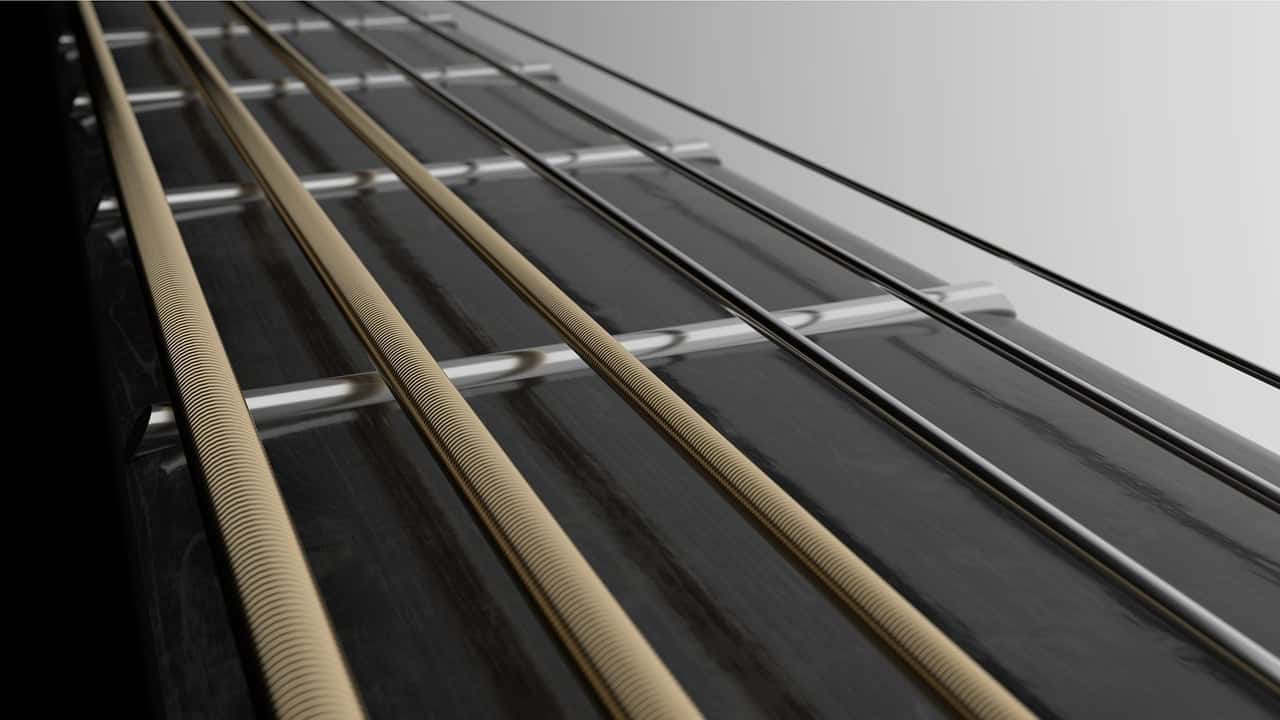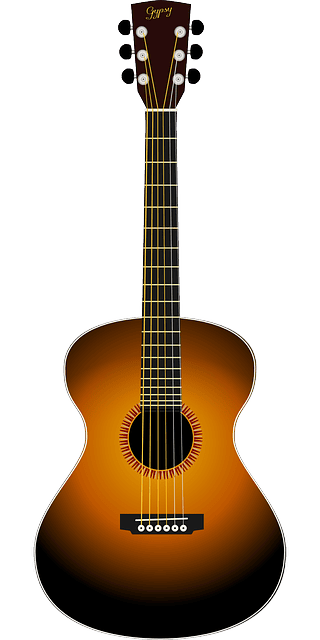Embarking on a journey to learn the guitar is an exhilarating experience, but choosing the right strings can significantly impact your playing comfort and sound quality. For beginners, navigating the myriad of options available can be overwhelming. Here, we’ll explore crucial aspects—string material, gauge, and coated vs. uncoated strings—to help novices make informed choices.
Note: This article purposely does not talk about brand, however you can read about our favorite strings and chose the brand you like and applying this article’s recommendations for beginners.
However, personal preference ultimately plays a significant role, so experimenting with different strings can help find the perfect match for individual playing styles and preferences. Continue reading for more details on string material, gauges, and coatings.

String Material
When it comes to string material, three primary types dominate the market: 80/20 bronze, phosphor bronze, and nickel.
80/20 Bronze: Known for its bright and crisp sound, 80/20 bronze strings offer clarity in higher frequencies. Beginners often find these strings produce a vibrant tone that suits various musical styles. They tend to have a shorter lifespan due to quicker oxidation but are budget friendly.
Phosphor Bronze: Renowned for their warm, balanced tones, phosphor bronze strings strike a harmonious middle ground between brightness and warmth. They’re durable and retain their tone for an extended period, making them an excellent choice for beginners aiming for a versatile sound.
Nickel: Nickel strings, less common among acoustic guitarists, provide a distinctive, smooth sound. They’re generally easy on the fingers, making them suitable for beginners struggling with finger soreness. However, they might lack the depth found in bronze strings.
Opinion on material for Beginners: For beginners, phosphor bronze strings are often recommended due to their balanced tones, durability, and versatility. They offer a pleasant sound that caters to various playing styles while maintaining durability—a crucial factor when practicing frequently.

String Gauge
String gauge refers to the thickness of the strings. Lighter gauges are easier to press down, making them gentler on the fingertips, while heavier gauges can offer richer tones and sustain.
Light Gauge: Easier to play, light gauge strings facilitate smoother transitions between chords and are kinder to beginner fingertips. However, they might sacrifice some depth and volume compared to heavier gauges. Light gauge strings usually have an E string diameter ranging from .10 to .12. Most manufacturers use .12 or 12’s in the factory.
Medium Gauge: Strike a balance between playability and tone. They require slightly more finger strength but offer enhanced volume and richness in sound, beneficial for players exploring various genres.
Heavy Gauge: Going all in on tone. They require more finger strength but offer enhanced volume and richness in sound, beneficial for players that have a specific need for a full sound. Bluegrass rhythm guitar is an example of specific usage where heavy strings may be an advantage.
Opinion on string gauge for Beginners: For beginners, light gauge strings (11 or 12 gauge) are preferable as they ease the initial discomfort on fingertips, allowing focus on learning without undue strain. The ease of playability encourages longer practice sessions, crucial for skill development. If your guitar game with 12’s and you find it difficult to finger and play our recommendation would be to try 11’s.

Coated vs. Uncoated Strings
Coated strings are protected by a thin layer that guards against dirt, sweat, and oils, extending their lifespan. Uncoated strings lack this protective layer, leaving them susceptible to quicker corrosion and losing their tonal brightness sooner.
Coated Strings: Ideal for beginners seeking longevity and consistent tone, coated strings resist corrosion, making them last longer. They’re particularly beneficial for those who don’t frequently change strings or live in humid environments.
Uncoated Strings: While offering a vibrant initial sound, uncoated strings lose their brilliance faster due to exposure to air and moisture. They might suit players who prefer a brighter tone and frequently change strings.
Opinion for Beginners: Coated strings prove advantageous for beginners due to their longevity and maintaining a consistent tone over time. They reduce the hassle of frequent string changes, allowing focus on learning and practice without worrying about string deterioration.
Don’t forget to check out our strings page and choose the brand you like.
Happy strumming!
